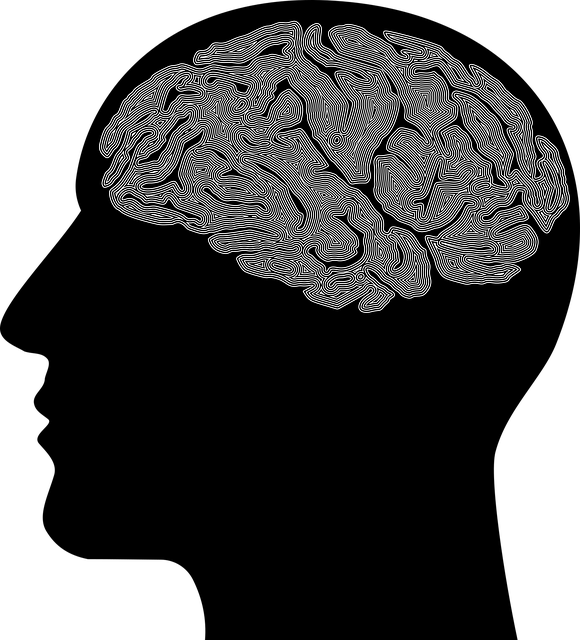Louisville Adjustment Disorder (LAD) is a mental health condition triggered by significant life changes, causing severe distress and dysfunction. Key symptoms include anxiety, depression, sleep disturbances, and social withdrawal. LAD therapy, emphasizing cognitive behavioral techniques (CBT), helps individuals manage stress, trauma, and negative thought patterns through evidence-based practices. Case studies show successful outcomes in preventing depression, improving relationships, and enhancing overall well-being. Louisville Adjustment Disorder Therapy centers offer tailored coping skills development, integrating mindfulness, deep breathing, and meditation to equip individuals with mental fortitude for daily challenges.
“Louisville Adjustment Disorder (LAD) can significantly impact an individual’s daily life, but understanding its symptoms and effects is the first step towards recovery. This article explores coping skills development through a multi-faceted approach, focusing on therapy as a catalyst. We delve into cognitive behavioral techniques, mindfulness practices, and stress management strategies to enhance resilience. Additionally, real-world case studies highlight successful applications of these skills in managing LAD. Discover how Louisville Adjustment Disorder therapy can empower individuals to navigate challenges effectively.”
- Understanding Louisville Adjustment Disorder: Symptoms and Impact
- The Role of Therapy in Coping Skills Development
- Cognitive Behavioral Techniques for Effective Coping
- Building Resilience: Mindfulness and Stress Management Strategies
- Real-World Application: Case Studies of Successful Coping Skills
Understanding Louisville Adjustment Disorder: Symptoms and Impact

Louisville Adjustment Disorder (LAD) is a mental health condition that arises when an individual struggles to cope with significant changes or stressors in their life. It’s characterized by feelings of severe distress and dysfunction in daily living, lasting for at least two weeks. The symptoms can include intense anxiety, depression, irritability, sleep disturbances, and difficulty concentrating. Those affected may also exhibit behavioral changes such as social withdrawal or aggressive outbursts.
The impact of LAD can be profound, affecting various aspects of an individual’s life including work performance, relationships, and overall well-being. Accessing Louisville Adjustment Disorder therapy is crucial for managing symptoms and developing effective coping skills. Trained therapists can help individuals process underlying trauma, enhance stress reduction methods, and foster burnout prevention strategies, ultimately improving their ability to navigate challenging situations and lead fulfilling lives. Trauma support services play a vital role in this process by providing safe spaces for expression and healing.
The Role of Therapy in Coping Skills Development

In the context of Louisville Adjustment Disorder Therapy, professional support plays a pivotal role in fostering effective coping skills development. Therapy serves as more than just a safe space; it’s a structured environment conducive to exploring and understanding individual responses to stress, anxiety, or trauma. Skilled therapists employ evidence-based practices tailored to address specific challenges, promoting clients’ ability to manage emotions, make sense of difficult experiences, and develop adaptive coping strategies.
Through dynamic interactions, therapy encourages clients to build resilience, a critical aspect of coping skills. This process involves not just learning new techniques but also cultivating cultural sensitivity within mental healthcare practice. By acknowledging and integrating diverse perspectives, therapists create an inclusive setting that enhances the effectiveness of treatment. Risk assessment for mental health professionals guides this approach, ensuring safety while fostering growth, ultimately enabling individuals to navigate life’s challenges with enhanced coping capabilities.
Cognitive Behavioral Techniques for Effective Coping

Cognitive Behavioral Techniques (CBT) offer a powerful toolkit for developing effective coping skills. This evidence-based approach focuses on identifying and challenging negative thought patterns and behaviors that contribute to distress. By understanding how thoughts, feelings, and actions interconnect, individuals can learn to manage their emotions more adaptively. CBT provides practical strategies such as mindfulness exercises, stress management techniques, and cognitive restructuring, enabling people to confront challenges with greater resilience.
For those struggling with Louisville Adjustment Disorder or other mental health concerns, integrating CBT into therapy sessions can be transformative. It empowers clients to take an active role in their healing process, fostering self-care practices that extend beyond the therapy room. Moreover, promoting cultural sensitivity within mental healthcare practice is essential for ensuring inclusive and effective coping strategies that resonate with diverse populations, contributing to the development of public awareness campaigns focused on mental wellness.
Building Resilience: Mindfulness and Stress Management Strategies

In Louisville, Adjustment Disorder Therapy plays a pivotal role in equipping individuals with robust coping skills and building resilience. Mindfulness practices have emerged as powerful tools to enhance emotional well-being and manage stress effectively. Through therapy sessions, clients learn to cultivate present-moment awareness, enabling them to confront and regulate their emotions more skillfully. This proactive approach not only helps in Depression Prevention but also equips individuals with the mental fortitude to navigate challenging situations.
Additionally, stress management strategies taught during therapy include techniques such as deep breathing exercises, meditation, and cognitive reframing. These communication strategies and conflict resolution techniques foster healthier interactions and relationships, further strengthening an individual’s coping abilities. By integrating these practices into daily life, individuals can build a resilient mindset that equips them to adapt and grow in the face of adversity.
Real-World Application: Case Studies of Successful Coping Skills

In the realm of Louisville Adjustment Disorder Therapy, real-world application case studies highlight the profound impact of coping skills development. These studies showcase individuals who, through targeted interventions and therapy sessions, have successfully navigated challenges such as depression prevention and emotional well-being promotion techniques. For instance, a case study might follow a young adult who, with the help of trained professionals, learned effective coping mechanisms to manage stress and anxiety, leading to significant improvements in their self-esteem.
By examining these success stories, it becomes evident that coping skills are not just theoretical constructs but practical tools capable of transforming lives. The integration of various emotional well-being promotion techniques has proven to be a game-changer, especially for those struggling with adjustment disorders. Louisville Adjustment Disorder Therapy centers often emphasize self-esteem improvement as a cornerstone of their programs, recognizing its pivotal role in fostering resilience and overall mental health.
Louisville Adjustment Disorder (LAD) can significantly impact an individual’s life, but coping skills development through therapy offers a promising path to resilience. By understanding LAD’s symptoms and employing evidence-based techniques like cognitive behavioral therapy and mindfulness practices, individuals can effectively manage stress and build adaptability. The real-world success stories highlighted in this article underscore the power of these strategies, providing valuable insights for navigating challenges associated with LAD. For those seeking Louisville Adjustment Disorder therapy, embracing these coping skills can foster a more balanced and fulfilling life.










